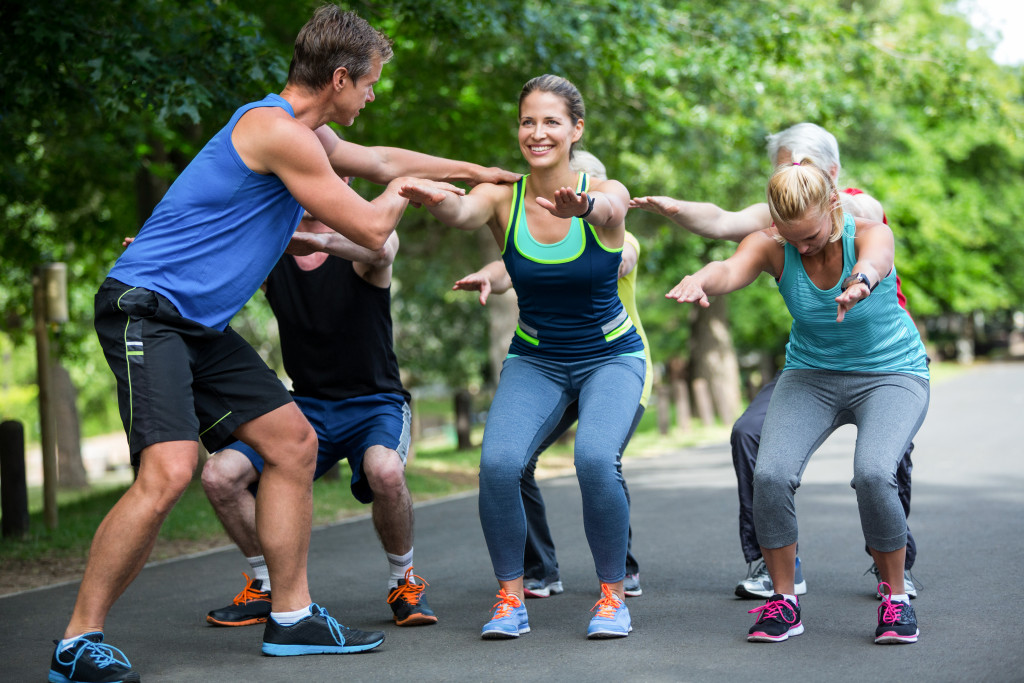- Regular exercise and mindfulness can help balance physical and mental fitness.
- A balanced diet rich in various nutrients is essential for physical and mental health.
- Adequate sleep improves memory, mood, and overall health while avoiding disruptions like caffeine.
- Building social connections, in person or through technology, can enhance mental health and increase life satisfaction.
- Prioritize both physical and mental health for an overall healthy lifestyle.
It’s common knowledge that taking care of your physical health is essential, but did you know that taking care of your mental health is equally as crucial? Achieving a balance between physical and mental fitness can significantly improve your overall quality of life.
This blog post will provide strategies for balancing both types of fitness to help you achieve a healthy life.

Make Time for Exercise
The first step to balancing physical and mental fitness is allocating time for exercise. Regular physical activity is important for maintaining good physical health and reducing the risk of chronic diseases such as diabetes, heart disease, and certain types of cancer. Exercise also positively impacts mental health by reducing stress and anxiety, improving mood, and promoting better sleep.
Minimum Requirement
Set aside at least 30 minutes daily for physical activity, whether jogging, weightlifting, or walking with your dog. Make sure to choose an activity that you enjoy so that you’re more likely to stick with it long-term. You should also aim to mix it up so that your body isn’t used to doing the same routine each day.
Practice Mindfulness
Mental fitness is just as necessary as physical fitness, and mindfulness is a great way to improve it. Mindfulness involves being present in the moment and focusing on your thoughts, feelings, and physical sensations. This practice has been shown to reduce stress, improve emotional regulation, and increase focus and attention.
Incorporate into Daily Routine
Incorporate mindfulness into your daily routine. This can include practices such as meditation, deep breathing exercises, or yoga. If you have nowhere to perform these activities, you can also explore different yoga studios catering to individual levels and preferences. These studios can be an excellent way to connect with like-minded individuals and learn more about the practice.
Maintain a Balanced Diet
Eating a balanced diet is essential for good physical health. This means consuming various nutrient-rich foods, including fruits, vegetables, lean proteins, and whole grains. A healthy diet is also crucial for mental health as certain nutrients such as omega-3 fatty acids, B vitamins, and zinc have been shown to improve mood and reduce symptoms of depression and anxiety.
Whole Ingredients
Prepare meals at home using whole ingredients as much as possible. This will allow you to control the quality and quantity of your food and ensure you get all the nutrients your body needs. When eating out, watch portions and try to avoid meals high in fat and calories.
Get Enough Sleep
Sleep plays an essential role in both physical and mental health. Adequate sleep has been shown to improve memory and concentration, boost mood, and reduce the risk of various chronic diseases.
Bedtime Routine
You should get at least seven hours of sleep a night. Create a relaxing bedtime routine that includes turning off electronics, taking a warm bath, or reading a book. Creating a calming sleep environment, with comfortable bedding and cool temperatures, can also help improve the quality of your sleep.
Avoid Caffeine and Alcohol
Avoid caffeine and alcohol late in the evening, as they can disrupt your sleep cycle. Exercise during the day, but not too close to bedtime, as this can also interfere with sleep quality. If you still have difficulty getting enough restful sleep, talk to your doctor about other methods to improve your sleep, such as cognitive behavioral therapy or supplementation.

Connect with Others
Social connections are important for good mental health. Humans are social creatures, and feeling connected to others has been shown to reduce stress, improve mood, and increase life satisfaction. Make time for social activities such as joining a club, volunteering, or meeting up with friends. Maintaining positive relationships with others can help improve overall well-being.
Build Relationships
Take the time to reach out and build relationships with those around you. This could include friends, family, work colleagues, or community members. Don’t be afraid to ask for help if you need it. Some people want to help you and support you in times of need.
Connect Through Technology
Even though people are physically distant, technology can also provide a great way to connect. Reach out to friends and family members via social media, video chat, or text message – it can help you feel more connected and supported.
Finding a balance between physical and mental fitness is key to a healthy life. By making time for exercise, practicing mindfulness, maintaining a balanced diet, getting enough sleep, and connecting with others, you can improve your physical and mental health. Remember, taking care of your mental health is as important as your physical health, so prioritize both.
